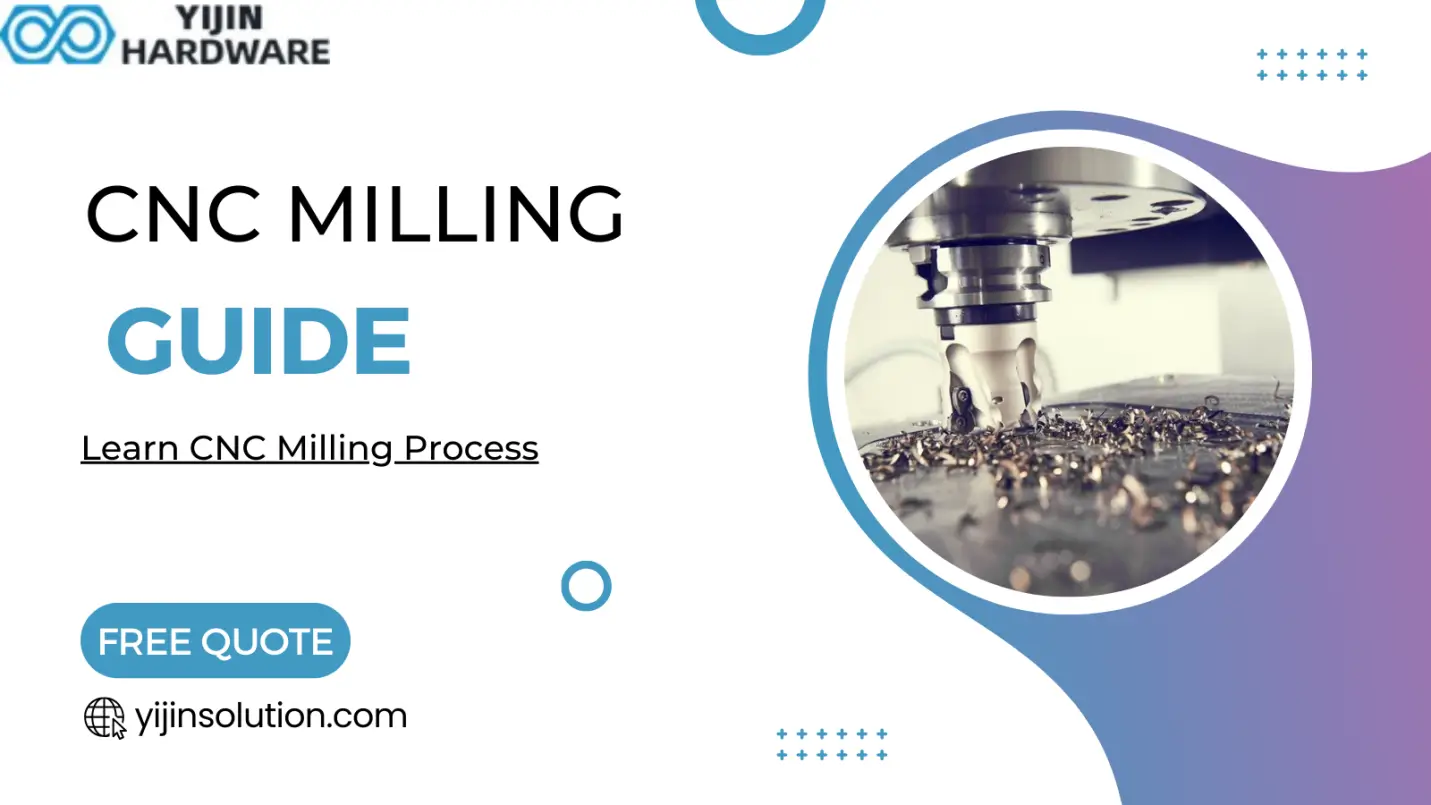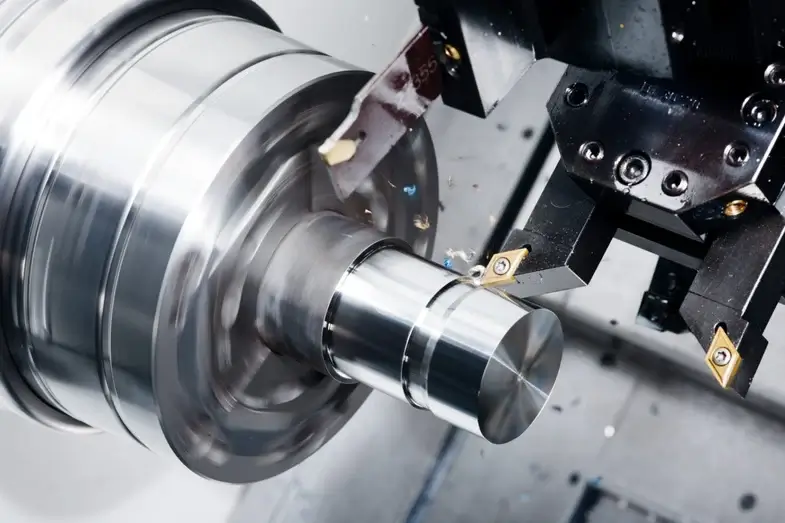In the manufacturing industry, computer numerical code, or CNC systems, is one meaningful breakthrough in technology. The process now involves fewer people, which has reduced the chances of human mistakes.
The nicest part about CNC machining, though, is that you don’t actually have to purchase the machinery. You did indeed hear correctly. These days, it is more common to just contract with a third-party service provider to handle the entire procedure. You avoid the initial outlay and machinery upkeep and gain accuracy and quality. Win-win situation.
I understand, though, if you are unsure about whether to maintain the machining services in-house or outsource them. That is a major choice. Have you given outsourcing CNC machining any thought at all? In such a case, you ought to read this post.

Here, we are mentioning the benefits of outsourcing CNC machining services to a third party.
Below is the list of benefits of outsourcing to a third party you should know before giving it a shot. These benefits might convince you more.
Access to Expert Knowledge
When you outsource the CNC machine, the greatest benefit you get is the pool of expert knowledge. With the outsourcing of machining, you step into the world of experts who are knowledgeable and skilled in the intricacies of CNC machining.
These experts are also filled with industry expertise and the most advanced technology. Therefore, you will get high-quality output without investing in training or tools.
Reduced Initial Investment
Cost reduction is a constant top priority in each company or sector. You can save a great deal of money upfront by contracting out CNC machining work. Rather than purchasing expensive equipment outright, you only pay a service provider to use theirs. In this manner, you may spend your money on other crucial areas of your company without worrying about high initial costs.
Greater Flexibility
Outsourcing CNC machining can give you amazing flexibility. And remember, when market demand changes, you should also keep up with it to adapt. Working with an outsourcing CNC machining company makes adjusting your production levels super easy.
If you need to increase production during busy times or slow it down when things are quieter, outsourcing lets you adapt quickly. This allows your business to stay competitive no matter what.

High Accuracy
Moving into next, another great thing about CNC machining is how precise it is. Thanks to computer programming, these machines can make parts with fma level of accuracy that’s tough to get with manual work.
When you outsource your CNC machining, you’re relying on machines that can produce parts with top-notch precision.
Variety of Material Options
Because CNC machines can operate with so many materials—metal, plastic, wood, and even those unusual ones you don’t hear about every day—they are truly remarkable. Any material your product design demands will be handled by your service provider when you outsource your CNC machining.
They’ll deliver top-notch quality and precision every time.
Streamlined Adjustments
If we talk about today’s rapidly moving business world, being able to move things quickly is essential. CNC machining makes it simple to tweak the design by just adjusting the machine’s programming.
You don’t have to mess around with manual changes, which means you can quickly update products as needed.
Increased Speed
Time is money in manufacturing. When you outsource your CNC machining, things move faster. CNC machines can run day and night without stopping, so you can meet your deadlines and keep customers happy.
Lower Costs
The profitability of your company is important. Two things go into saving you money when you outsource CNC machining: there are no equipment purchases upfront, and ongoing expenses for labor, maintenance, and energy are less.
Enhanced Production Process
CNC machining automates a lot, cutting down on mistakes and making everything run smoother. Outsourcing means you get all these benefits without having to invest in pricey machines or train your own staff.
Fewer Errors
Mistakes in manufacturing can be costly. CNC machines are precise because they follow exact instructions. Outsourcing means trusting this precision to minimize waste and make the most of your resources.
Less Material Waste
Less material waste is a consequence of CNC machining precision. Your bottom line and the environment benefit from outsourcing since it guarantees that your parts are produced effectively and sustainably.
Superior Quality Management
Quality is key in manufacturing. CNC machining lets you program every step, so you have top-notch control over quality. Outsourcing means relying on machines that consistently deliver quality, which builds trust with your customers.
Optimized Workflow
CNC machining streamlines production, making everything more efficient. Outsourcing speeds up production, helping you meet demand faster and stay competitive.
Shorter Lead Times
Because CNC machining is fast and efficient, outsourcing means quicker completion times. That means getting your products to market sooner and staying ahead of the competition.
Faster Production Stages
Outsourcing CNC machining makes expanding your business easier. With someone else handling production, you can focus on growing your business, knowing your manufacturing needs are covered.
No Equipment Purchases Needed
Buying CNC equipment is a big expense. Outsourcing means you skip this cost but still get access to top-notch machinery, freeing up your funds for other priorities.
Advanced Design Expertise
Outsourcing to a CNC service gives you access to skilled designers. Companies like Yijin Hardware have experienced engineers who can turn your ideas into high-quality products.
Learn More:
Top 10 CNC Machining Companies In China
Top 10 Precision CNC Machining Companies
How to Choose Reliable CNC Machining Services

When you’re searching for good and reliable CNC machining services, what should you look for?
What Services Do They Offer?
Well, first off, check out what services they offer. You want a shop that does it all—milling, turning, EDM, wire EDM, surface grinding—the whole deal. It makes your life easier when they can handle everything under one roof like Yijin does.
What About the Machines They Use?
Absolutely. The machines they use are super important. You want them rocking the latest CNC machining centers with 3-, 4-, and 5-axis capabilities. That’s where the precision comes from, and it gives you more flexibility in what they can make.
Learn More:
Top 10 5-Axis CNC Machining Companies In China
Top 10 5-Axis CNC Machining Companies In The World
What About the Team?
The team is key. You have to make sure they know their stuff inside and out. Look for a crew that knows its stuff and has been around the block with CNC machining. They should handle all sorts of materials and be quick to make adjustments to avoid screw-ups that cost time and money.
What About The Cost?
Cost is definitely a big deal, but it’s not everything. You want to get good value for your money. You want top-notch parts that don’t break the bank. Places like Yijin Hardware deliver quality without cutting corners on precision or hitting deadlines.
What About Their Customer Satisfaction And Reviews?
When searching for a good provider, check the reviews. That’s where you’ll hear the truth. Good shops will have happy customers who praise them for quality control, fast turnaround, and keeping folks satisfied. Like Yijin, they’re known for nailing it.
What About Their Turnaround Time?
Look for a CNC machining provider that can churn out parts quickly without sacrificing quality. Yijin Hardware claims they can whip up precise components in just five days—now that’s efficient.
Basically, they offer a bunch of online options like surface grinding, milling, turning, EDM, wire EDM, and milling. These are some cutting-edge CNC machines with three, four, and five axes. Moreover, their staff is quite knowledgeable. They’re pretty versatile, handling both metal and plastic components.
A few prototypes or a ton of parts—YIJIN Hardware has you covered. They are designed to become your first choice for both full-scale manufacturing and prototyping..
Choose Yijin Hardware for Your CNC Machining Projects
![]()
Yijin Hardware is a reliable option to choose for a partner for your CNC machining projects. Being well-known for their wide range of CNC machining services, they have made a name for themselves in the market. Yijin Hardware has the experience you need to handle your particular needs, whether you need precise milling, complex turning, or specialized custom machining.
Selecting Yijin Hardware means that you are working with a business that values providing excellent quality and guaranteeing client happiness. They pledge to exceed expectations by machining with extreme accuracy and caution. They use the newest CNC technology and put in place stringent quality control procedures in order to uphold high levels of excellence.
Yijin Hardware might be the best fit for your next project if you require a CNC machining partner that excels in expertise, dependability, and a customer-centric approach. Look closely at how their services can improve the outcome of your manufacturing projects.
Wrap Up
If you wish to increase your manufacturing, outsourcing CNC machining services might be quite beneficial. Many advantages include cost savings, strict control over quality, faster production, and ease of business expansion.
It is essential to stay ahead of the competition in today’s market. When you contract with a reliable company like YIJIN for your CNC machining, your production will be flawless, effective, and of the highest caliber. Take advantage of outsourcing CNC machining now to push your business towards even bigger success.
 Call Us Today! (+86) 188-2253-7569
Call Us Today! (+86) 188-2253-7569


